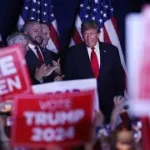Surge in China Exports as U.S. Tariff Clock Ticks Down

Chinese exporters are accelerating shipments to the United States as Washington’s temporary tariff rollback nears expiration. July data from China’s General Administration of Customs shows a sharp rise in exports to the U.S., driven by companies racing to beat a potential tariff reinstatement expected later in 2025.
Shipments of electronics, auto parts, and green tech components surged by more than 14 percent year-over-year. Analysts link the rise directly to market anticipation of a policy reversal under the Trump administration, which has signaled plans to reimpose steep trade penalties on select Chinese sectors.
Former President Donald Trump, now leading the U.S. government once again, has hinted at reviving a strict trade policy that shaped his first term. Trade advisers have proposed restoring tariffs on key imports, especially in tech, steel, and clean energy sectors where China holds dominant market positions.
In a recent interview, a senior White House trade official said the administration aims to protect U.S. manufacturing and reduce dependence on Chinese supply chains. The tariff grace period, granted earlier this year during transition negotiations, is set to expire in Q4 of 2025.
Chinese manufacturers are working overtime to ship goods before U.S. tariff increases take effect. Exporters have ramped up production across industrial hubs in Guangdong and Jiangsu, with major firms reporting order spikes from American retailers and wholesalers.
Logistics providers in Shanghai and Shenzhen reported capacity constraints and rising freight rates as demand for trans-Pacific shipping intensified. Economists warn that the frontloading trend may trigger a short-term glut followed by a slowdown, disrupting pricing and inventory cycles in early 2026.
The renewed trade tension reflects broader geopolitical recalibration between the U.S. and China. As the Trump administration reshapes foreign economic policy, Beijing has called for stability and warned against politicizing global supply chains.
A spokesperson from China’s Ministry of Commerce said unilateral tariffs harm both economies and risk inflaming inflation in U.S. markets. U.S. trade groups, including the National Retail Federation, have urged the White House to reconsider blanket tariffs, citing consumer impact.
Global investors are watching the tariff timeline closely. Multinational firms with dual exposure to both U.S. and Chinese markets may face strategic decisions on sourcing and logistics. If tariffs return, analysts expect a ripple effect across Asian manufacturing corridors, including Vietnam, Malaysia, and India, as companies accelerate diversification strategies. The tariff debate could also influence 2026 election narratives centered on inflation, jobs, and economic nationalism.










